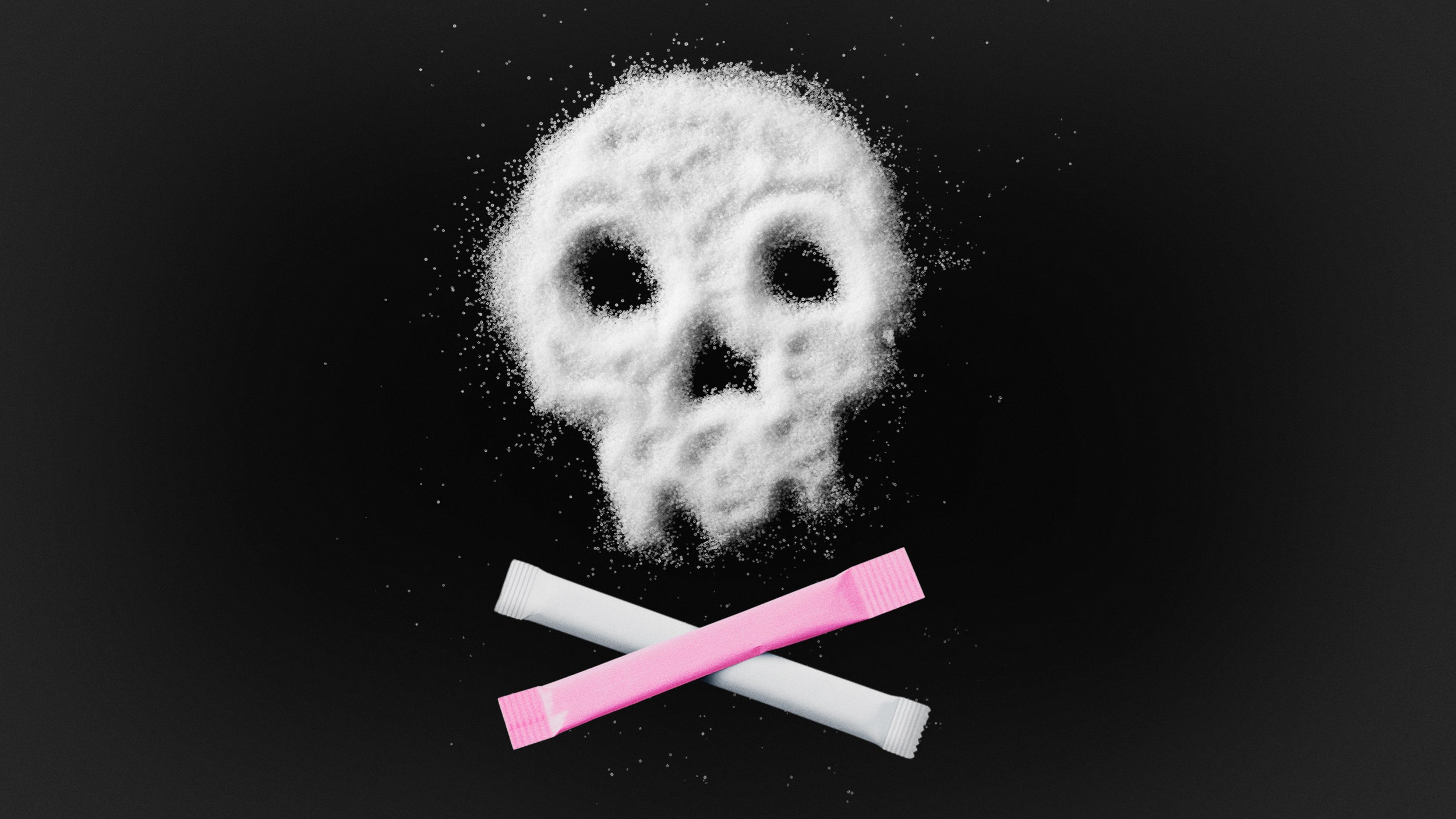On a predictable schedule, there’s a headline that makes you spit out your Diet Coke. This week, it’s that sucralose, the artificial sweetener found in Splenda, as well as Diet Coke with Splenda has been found to be “genotoxic,” meaning it can break down DNA, which is widely accepted as something that’s not good and can lead to unpleasant things like leaky gut syndrome.
But not so fast. Epidemiologist Gideon Meyerowitz-Katz wrote a piece in response to the study and the glut of “extremely misleading” media coverage that followed. He noted that the study took place in petri dishes, and said that it would take chugging 50,000 cans of Diet Rite Cola over two hours to reach the specific sucralose concentration levels where DNA damage was found to occur in the study.
Agnostic of any health benefits or deleterious effects, artificial sweeteners are a guaranteed source of panic whenever a study pops up. Last February, artificial sweeteners found themselves under the media microscope when erythritol, another popular artificial sweetener, was linked to cardiovascular events in a study published in Nature.
In a bipartisan display of fear, both CNN and Fox News covered the study, warning of the devastating effects of the very scary-sounding sugar alcohol, erythritol. Some experts expressed a deep skepticism about the study, including Dr. Peter Attia, who wrote that there was “no need for alarm,” while poking holes in the study’s methodology, though acknowledging that he and his patients do not prefer this sweetener given its “non-trivial gastrointestinal side effects.” Researcher and registered dietician Kevin Klatt also went long on the study’s shortcomings in a Substack post.
“If you see this and think, it’s time to scare everyone away from using any erythritol ever, you might be putting the cart before the horse and probably just selling clicks or bolstering a fearmongery wellness brand that has folks micro-optimizing every aspect of their lives,” wrote Klatt.
Both Attia and Klatt mention fearmongering in their analysis (both also pointed out that we naturally produce erythritol) and the gist was the same: the study’s coverage was making a whole lot out of nothing.
We know there is one sweetener linked to weight gain, dental decay, diabetes, and a whole host of other issues: sugar. As for the fake stuff: we’re still figuring it out.






